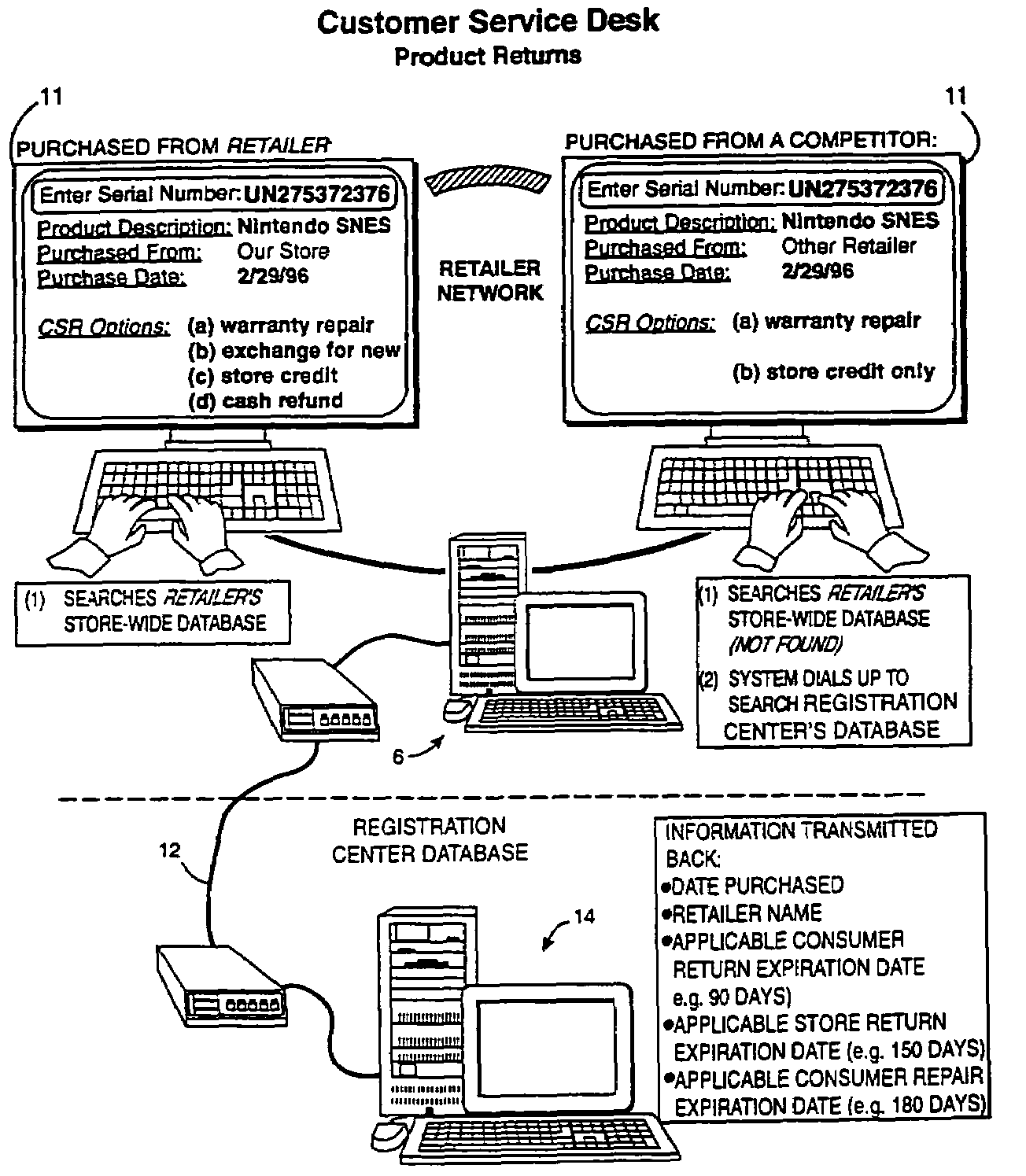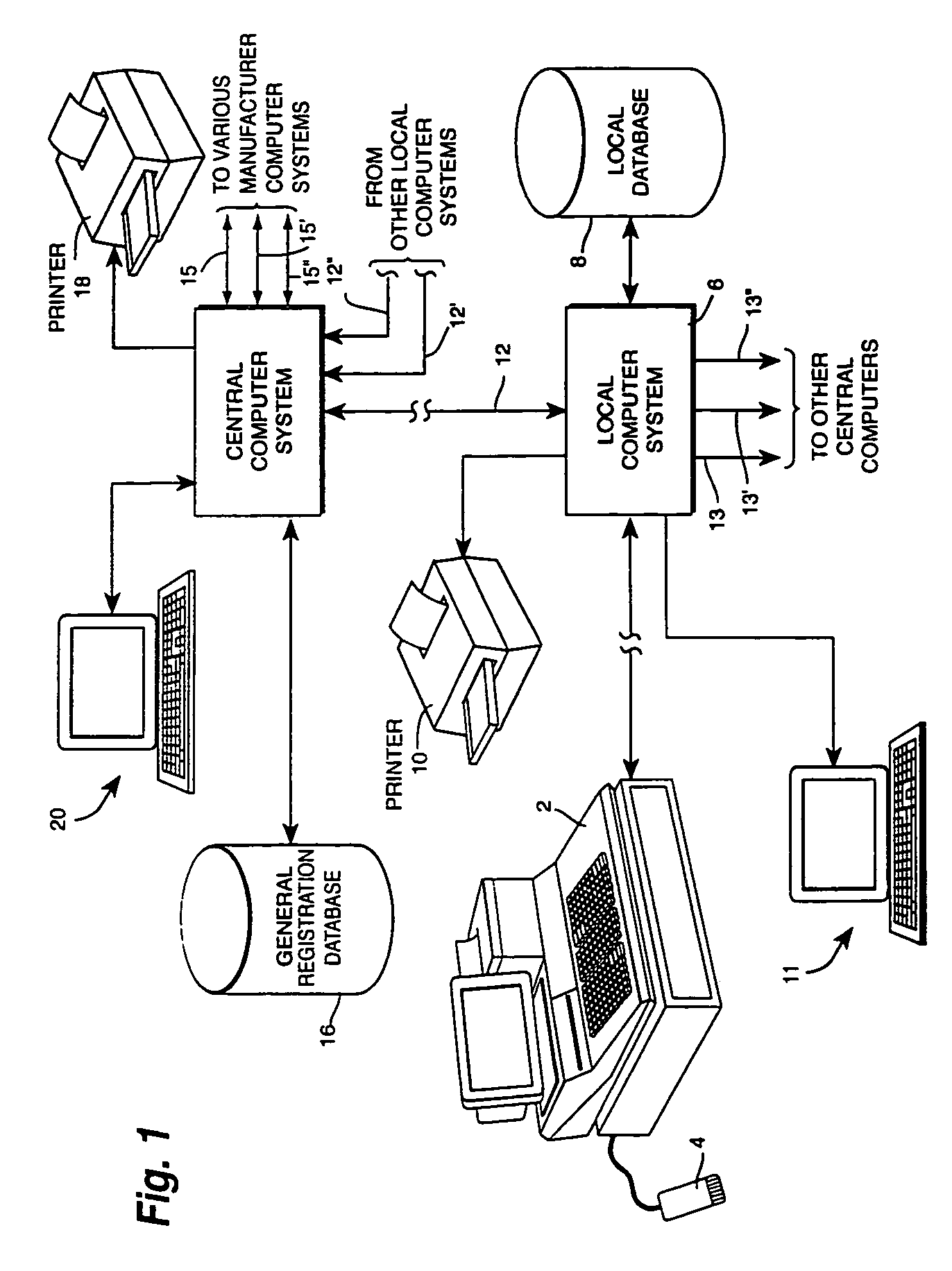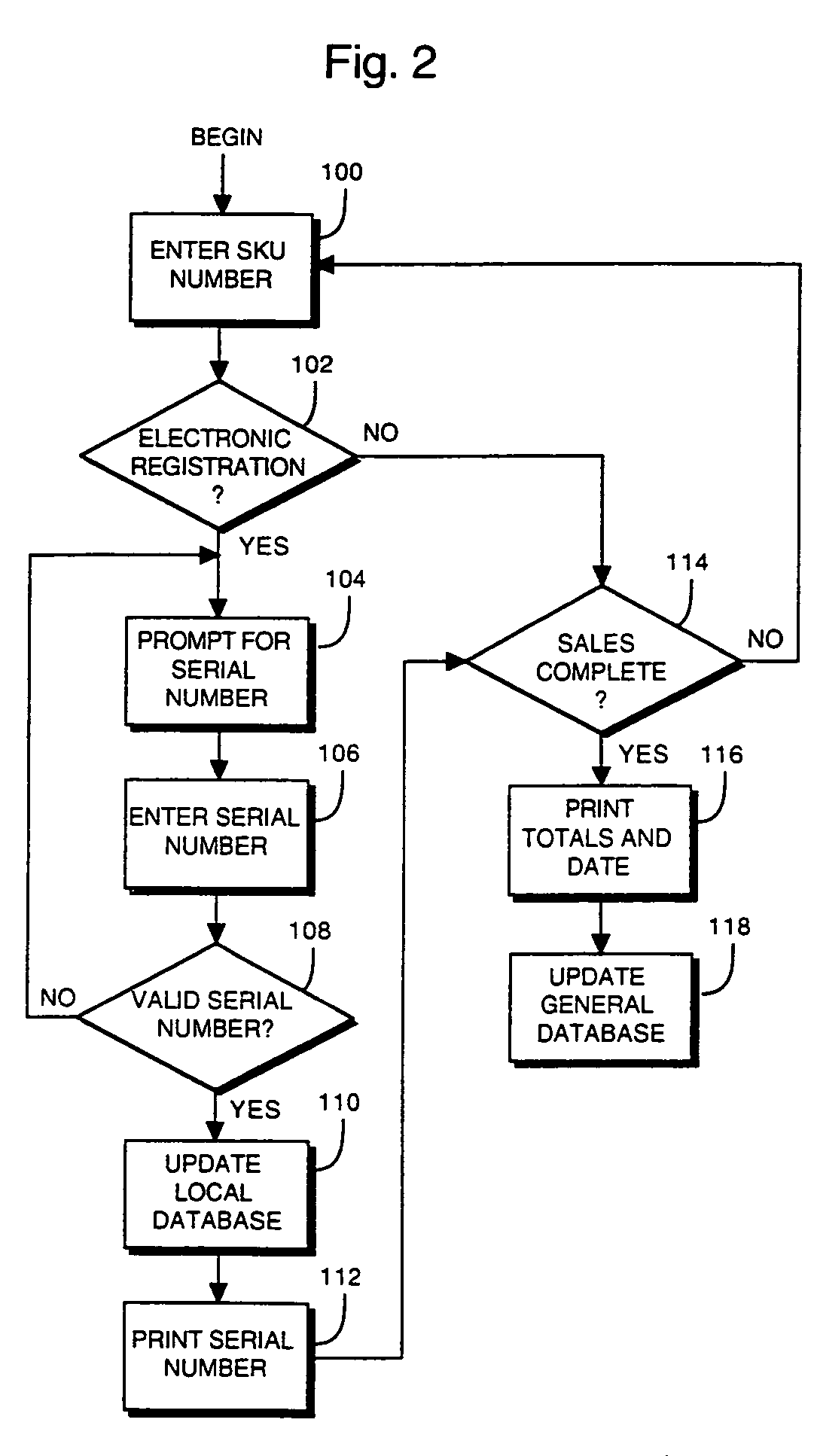Unfortunately, handling product returns often requires a significant expenditure of resources.
This process can be complicated due to the fact that a particular retailer often carries numerous different type of products from different manufacturers, each of which often has their own return and warranty policies and procedures.
This is a difficult, time-consuming, and error-prone process that often results in improper acceptance or rejection of product returns and / or warranty claims at the retail level.
However, when the retail store accepts a product return that does not comply with the manufacturers return policy, problems result between the retailer and the manufacturer because the manufacturer will refuse or be reluctant to accept the returned product from the retailer.
Moreover, significant time and expense is wasted when a retailer improperly accepts products for return that do not comply with the manufacturer's return policy.
Often times the improperly returned products are shipped to the manufacturer and then are simply returned to the retailer upon be rejected for return by the manufacturer.
This results in significant wasted shipping charges and employee time in attempting to resolve such matters.
This situation can also result in significant tension between the retailer and the manufacturer.
In other words, when a returns are not properly handled at the retail level, numerous problems result for the retailer and the manufacturer.
However, this alternative can increase costs due to the higher number of improper product returns.
In addition to the costs associated with verifying compliance with a return policy, even proper product returns incur additional administrative costs.
As a result, a delicate balance must be maintained between protection of the retailer or manufacturer and
consumer satisfaction.
Unfortunately, it is often difficult to monitor product returns to ensure proper compliance with a return policy.
In such a situation, an uninformed decision must often be made to accept the return or not.
If the return is not accepted, the
consumer might unfairly be denied a proper return, and the retailer and the manufacturer risk suffering a loss of goodwill.
On the other hand, if the return is accepted, the retailer and / or the manufacturer will incur expenses or losses which might be unwarranted.
This alternative, however, may be unacceptable to a
consumer and does not completely eliminate the retailers'
exposure to improper returns.
Difficulties associated with returns made without a
receipt stem primarily from the inability of the retailer to obtain purchase information (such as sales date, place of purchase, etc.) concerning the
individual item for which a return is sought.
Without such information, it is usually impossible for the retailer to determine whether the return is in compliance with the return policy.
In addition to the foregoing, fraudulent returns can cost product retailers and manufacturers significant sums of money.
Such abuses increase costs to the retailers and manufacturers.
While companies generally try to prevent fraudulent returns, the personnel responsible for
processing such returns do not have the suitable resources and / or information needed to assure that only proper returns are accepted.
This problem is compounded when the consumer does not have a
receipt because it has been lost or because the product was received as a gift from another person.
While many of these situations represent legitimate return requests, a significant percentage of such return requests are fraudulently made by consumers.
Unscrupulous consumers have in recent years become increasingly creative in their attempts to return merchandise which does not in fact qualify for return under the purchase agreement.
Under
current practice, retailers are at a significant
disadvantage in connection with product return requests, because they typically do not know whether a product has been purchased from their store or another store, or even how much was originally paid for the product even if the product was purchased at its store.
Return audits have shown that a significant number of consumers use this
disadvantage to their personal benefit and at the cost of the retailer and manufacturer.
This interest is largely due to diminishing profit margins and the competitive nature of the retailing business.
Because of thin profit margins, retailers and manufacturers can no longer absorb the cost of unjustified product returns.
However, efforts to speed handling or improve
enforcement lose their value if the expense of those efforts outweighs the accompanying benefit.
Another problem confronted by retailers stems from the fact that different manufactures may have different return policies.
Similarly, some manufacturers may have strict limitations on product returns without original packaging or returns of products wherein relatively minor parts (e.g., instruction manuals, connecting cables, etc.) are missing.
Because of the variety of manufacturer return policies, it is often difficult for a retailer to ensure proper compliance.
As a practical matter, it may be extremely difficult or even impossible to educate the retailer staff with regard to each return policy.
This problem is compounded by the fact that manufacturers and / or retailers may have returns policies that vary between products.
Thus, retailers may be placed in a position where improper returns are inadvertently accepted or where proper returns are rejected.
Accepting improper returns increases costs which must either be absorbed or passed on to customers in the form of higher prices or restocking fees, for example.
Of course, rejecting proper returns may damage goodwill between the vendor and the customer.
 Login to View More
Login to View More  Login to View More
Login to View More 


